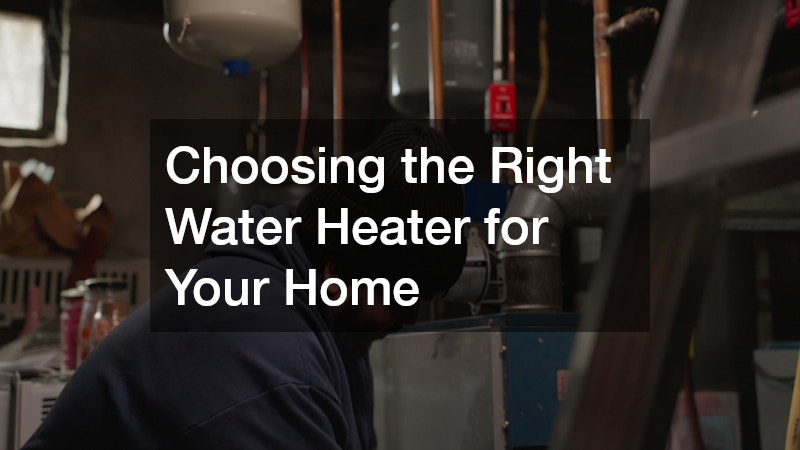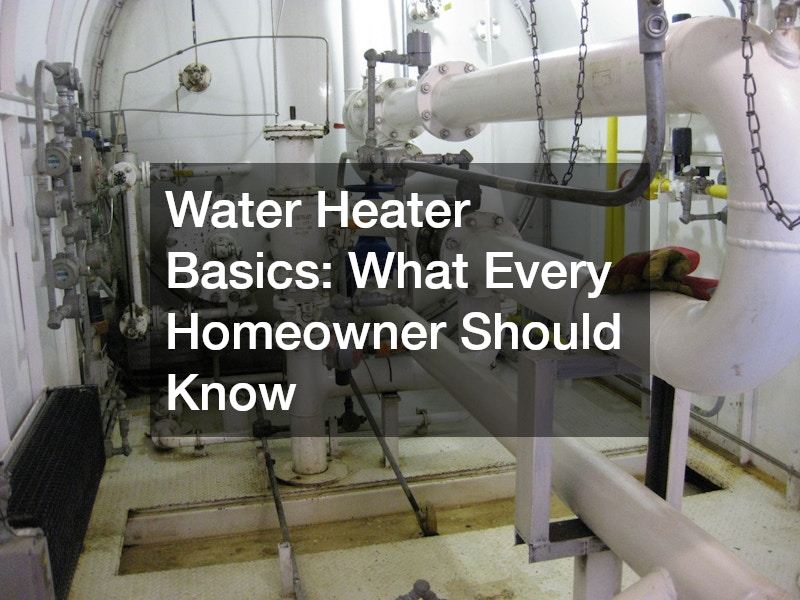A reliable water heater is one of the most essential appliances in any home. From hot showers to washing dishes and doing laundry, it plays a major role in everyday comfort and convenience. Understanding how your water heater works, the types available, and how to maintain it can help you extend its lifespan and ensure it operates efficiently.
Below is a straightforward guide to the basics of water heaters, perfect for homeowners who want to keep their systems in top shape.
How a Water Heater Works
At its core, a water heater’s job is simple: heat cold water and deliver it to your taps or appliances when needed. Most residential water heaters store water in a tank, keeping it warm until you turn on a faucet.
Once the hot water is used, the tank refills with cold water and reheats it to the set temperature.
In tankless models, the process is slightly different. Instead of storing water, these systems heat water on demand as it passes through the unit. This means you get hot water only when you turn on the tap, with no need for a large storage tank.
The main components of a traditional tank-style water heater include:
-
Tank: Stores the heated water until it is needed.
-
Heating Element or Burner: Electric models use heating elements, while gas models use a burner and flue system.
-
Thermostat: Controls the water temperature.
-
Anode Rod: Helps prevent tank corrosion by attracting minerals that would otherwise damage the tank.
Types of Water Heaters
When it comes to choosing a water heater, there are a few main types to consider:
-
Storage Tank Water Heater
This is the most common type. It stores a set amount of hot water in a tank and keeps it heated until needed. It’s simple to operate and widely available in both electric and gas models. -
Tankless Water Heater
Also known as an on-demand water heater, this system heats water only when needed. It can provide a continuous supply of hot water without the limitations of tank capacity. -
Heat Pump Water Heater
This energy-efficient option moves heat from the air or ground into the water rather than generating heat directly. It works best in warmer climates. -
Solar Water Heater
Uses solar panels to capture energy from the sun to heat water, with a backup system for cloudy days or high-demand situations.
Signs Your Water Heater May Need Attention
Even the best-maintained water heaters eventually show signs of wear and tear. Watch for:
-
Fluctuating water temperature: If the water isn’t as hot as it used to be or changes temperature unexpectedly, there could be an issue with the thermostat or heating element.
-
Rusty or discolored water: This may indicate corrosion inside the tank or pipes.
-
Unusual noises: Popping, rumbling, or banging sounds often come from sediment buildup inside the tank.
-
Leaks: Water pooling around the base of the heater is a clear sign something is wrong.
Addressing these problems early can help you avoid more serious issues later.
Basic Maintenance Tips
Regular maintenance can help extend the life of your water heater and improve its efficiency. Here are a few key steps:
-
Check the Pressure Relief Valve: This safety feature prevents excessive pressure buildup in the tank. Test it at least once a year.
-
Flush the Tank: Sediment can accumulate in the bottom of the tank over time, reducing efficiency and causing damage. Draining and flushing the tank once a year can help prevent this.
-
Inspect the Anode Rod: This rod protects your tank from corrosion. If it’s worn down, replace it to extend your tank’s lifespan.
-
Adjust the Thermostat: Keeping the water temperature at around 120°F helps prevent scalding and reduces energy use.
Safety Considerations
A water heater should always be installed and serviced by a qualified professional. Incorrect installation can lead to safety hazards, such as gas leaks or excessive pressure buildup. For gas models, it’s also important to check for proper ventilation to prevent carbon monoxide buildup.
Choosing the Right Water Heater for Your Home
When deciding on a water heater, consider:
-
Household Size: Larger households may need a bigger tank or a higher-capacity tankless unit.
-
Energy Source: Choose between electric, gas, or alternative options like solar or heat pump.
-
Hot Water Usage: If you run multiple appliances at once, you may need a system that can keep up with high demand.
A water heater may not be the most glamorous appliance in your home, but it is one of the most important for everyday comfort. Understanding how it works, keeping up with regular maintenance, and knowing when to call a professional can make a big difference in performance and longevity.
If you take the time to learn the basics now, you’ll be prepared to spot issues early, choose the right replacement when needed, and enjoy a reliable supply of hot water for years to come.



